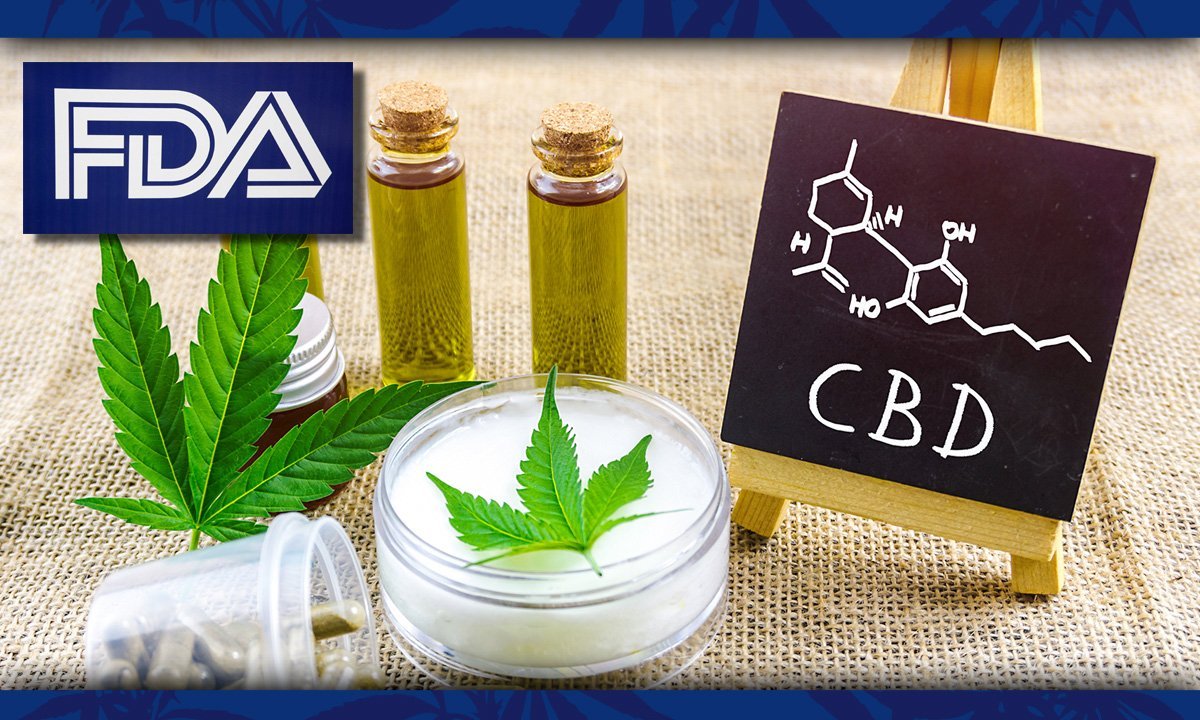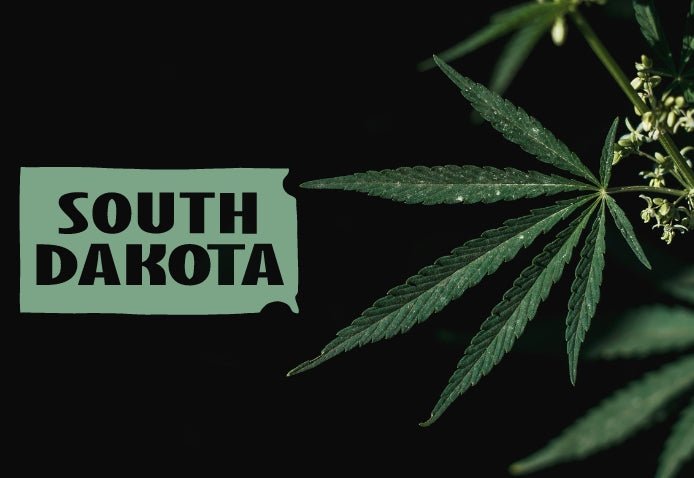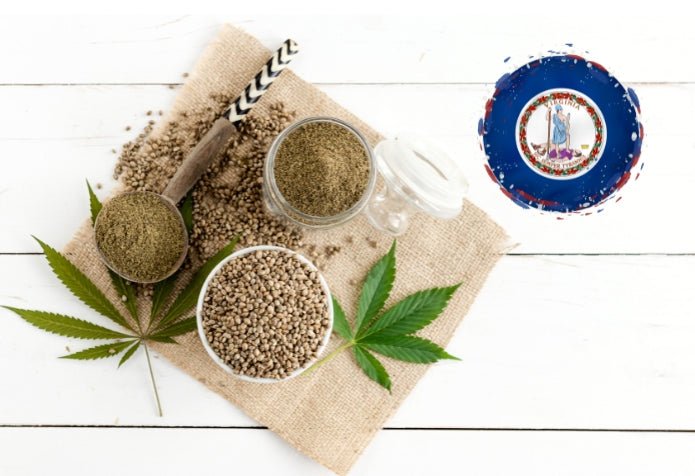The agency, feeling pressure from Congressional lawmakers, industry stakeholders, and advocates, is starting to shift its messaging from zero action to the appearance, at least, of some action.

The deep-freeze treatment of CBD by the Food and Drug Administration (FDA) appears to be thawing a bit, according to recent statements by some officials at the regulatory body. As first reported by Marijuana Moment, during a webinar hosted by the Alliance for a Strong FDA earlier this month, FDA Deputy Commissioner for Policy, Legislation, and International Affairs Kimberlee Trzeciak spoke about the agency's evolving stance on items like CBD and the increasingly polarizing Kratom.
When the topic of what issues will be "top of mind" for the FDA in 2024, as well as how the agency hopes to engage with Congress on those items, Trzeciak responded by stating that later this year or next, agency leaders hope to address the establishment of "an appropriate regulatory framework for CBD."
She was then asked specifically about how the FDA plans to prioritize its work on marijuana and kratom regulations. "In almost every neighborhood you go to, you can see stores on the corners that are marketing CBD and kratom and others. And one of the things that we have been thinking through here at FDA, using CBD as an example, is what does the regulatory framework for those products look like?" she said.
Trzeciak further explained that officials are considering several factors as they strive to develop the best strategies for addressing the potential regulatory guidelines for the substances.
"Based on what we know about CBD in particular, we do not think that those products would be able to meet the safety standards that we have in place for foods and dietary supplements today," she said, referencing the agency's position to decline enactment of regulations for the non-intoxicating cannabinoid last year.
"Based on what we know about CBD in particular, we do not think that those products would be able to meet the safety standards that we have in place for foods and dietary supplements today."
- FDA Deputy Commissioner for Policy, Legislation, and International Affairs Kimberlee Trzeciak
She then proceeded to toe the company line for handling new and challenging products like CBD and Kratom, with a cookie-cutter plan and initial strategy approach.
"What can we do in terms of regulatory tools to ensure that this product is going to be marketed (so) that consumers are clearly aware of what the product is, what is in it, and making sure that we have basic information about the marketplace? I like to think of it as the common regulatory tool that we have across the other products that we regulate," Trzeciak said.
"What can we do in terms of regulatory tools to ensure that this product is going to be marketed (so) that consumers are clearly aware of what the product is, what is in it, and making sure that we have basic information about the marketplace? I like to think of it as the common regulatory tool that we have across the other products that we regulate."
- FDA Deputy Commissioner for Policy, Legislation, and International Affairs Kimberlee Trzeciak
Trzeciak added that she and her fellow agency colleagues want to "work with Congress on this effort," including potential rulemaking around CBD product labeling and packaging.
"For example, how can we ensure that the agency knows if there are adverse events that are being reported, so we can identify those trends, making sure that the product is being manufactured or produced in a way that's safe and quality?" she said.
While her comments and somewhat vague details are better than the current state of zero regulatory guidelines and a few sternly worded letters of warning to corporate violators, many in the hemp community remain unimpressed by the agency's lack of initiative in helping to craft regulations for an industry that has been begging the FDA to do its job for years.
It was, after all, the FDA that sent shockwaves across the hemp industry by issuing a letter last year, effectively relinquishing its authority to establish guidelines for regulating hemp products, most notably CBD, to Congress. In that letter, the agency said there needed to be more information about the safety of CBD products to properly regulate them as foods or supplements under the FDA's current structure.
The hope had been for Congress to address the issue of regulations for CBD, delta-8 THC, and other synthetic, high-producing compounds made from CBD through the renewed Farm Bill. However, much like the entire hemp sector, the regulatory agency must wait for legislators to return later this year to take on the contentious issues presented by the hemp portion of the legislation.
Not willing to stand by and wait for action that seemingly will never come, a group representing nonprofit and supplement organizations sent a letter recently to the House of Representatives Energy and Commerce Committee pleading for the committee members to discuss the FDA's lack of regulation of hemp products, most notably those containing CBD.
For its part, Congress has also been busy trying to clear a pathway for the FDA to step in and create a regulatory infrastructure for CBD. Last July, Sens. Ron Wyden (D-OR), Rand Paul (R-KY), and Jeff Merkley (D-OR), along with Rep. Earl Blumenauer (D-OR), filed legislation that would remove the barriers the FDA claims to prevent it from making hemp marketing permissible.
The measure known as The Hemp Access and Consumer Safety Act, which was also introduced during the previous session of Congress but did not advance, would exempt "hemp, hemp-derived cannabidiol, or a substance containing any other ingredient derived from hemp" from certain federal restrictions while allowing officials to establish labeling and packaging rules.
In a press release, Sen. Wyden said, "Despite being legally grown in the United States for nearly five years, hemp and hemp-derived CBD are still in a regulatory gray zone that puts consumers at risk and holds producers back. The FDA says it needs Congress to act. We've got the bill to ensure equal and safe access to hemp-derived CBD."
"Despite being legally grown in the United States for nearly five years, hemp and hemp-derived CBD are still in a regulatory gray zone that puts consumers at risk and holds producers back. The FDA says it needs Congress to act. We've got the bill to ensure equal and safe access to hemp-derived CBD."
- Sen. Ron Wyden (D-OR)
Trzeciak's statements are an encouraging sign and a step in the right direction. However, for hemp advocates and stakeholders, words mean nothing, especially coming from an agency with a track record for saying a lot and delivering very little for the hemp industry.
The clock is ticking for so many small and medium-sized businesses that have grown dependent on all that the versatile and magical plant has and can continue to be for them and their millions of loyal customers. Concrete and tangible results are all that matter at this point. Hopefully, Trzeciak and Co. can deliver the goods.








































